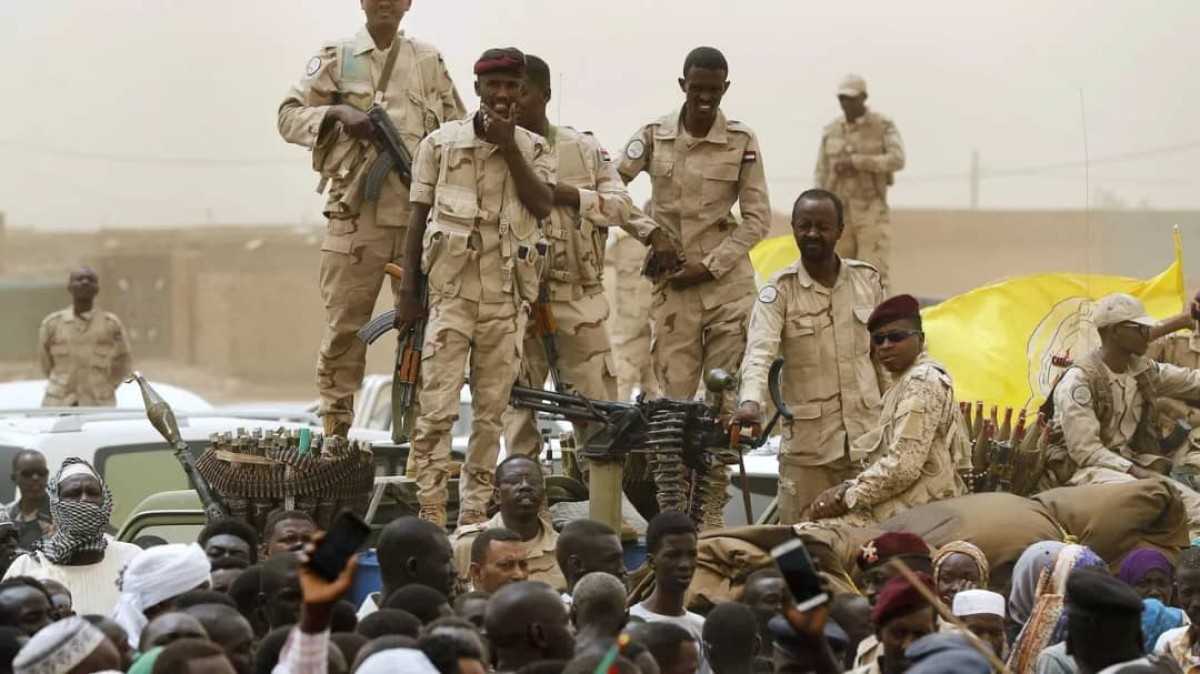Sudan.. The Rapid Support Forces threaten to announce a parallel government in Khartoum


The Rapid Support Forces threatened to announce a parallel government in the Sudanese capital, Khartoum, despite the Sudanese army’s refusal to negotiate in Geneva.
Al-Basha Tabeek, advisor to the commander of the Rapid Support Forces, Mohamed Hamdan Daglo (Hemedti), wrote on the “X” platform today, Saturday, that “the intransigence of the army leaders and their refusal to negotiate and preferring the option of escalation and war may lead to the announcement of a government in Khartoum.” .
Tabiq pointed out that “the government will, in turn, look towards protecting civilians and delegitimizing the head of the Intifala Sovereignty Council, Abdel Fattah Al-Burhan, in addition to opening diplomatic relations with a number of countries, and concluding deals to purchase warplanes and advanced air defense systems to neutralize the Sudanese army’s aviation.” In addition to establishing a banking system in areas controlled by the Rapid Support Forces.
The US special envoy to Sudan, Tom Perriello, said on Saturday that the Sudanese army commander, Abdel Fattah al-Burhan, was open to the Sudanese army’s participation in the Geneva talks, but there are “very negative political forces hindering it,” as he put it.< /p>
Al-Sudani newspaper quoted Perriello as saying that there were many people in the Sudanese government and army who wanted to participate in the Geneva talks but were unable, pointing out that he would leave them free to comment on this matter.
It is noteworthy that a few days ago, Al-Burhan renewed his country’s position on participating in the Geneva talks, saying: “We adhere to our principled position, which is not to attend the Geneva negotiations unless the Jeddah decisions are implemented.”
The Sudanese army commander added: “Whoever wants to stop the war must talk to the rebels who are attacking civilians in their areas. The violations committed by the Rapid Support militias against the Sudanese people are unprecedented in all the wars of the world,” he said.
Abdel Fattah Al-Burhan stressed that his government’s position on any negotiations is known through the vision it presented to the mediators, according to a statement issued by the Sovereignty Council.
In a related context, the Sovereignty Council announced, in a statement, that the government will send a delegation to the Egyptian capital, Cairo, to hold talks regarding the implementation of the Jeddah Agreement, without specifying a date for that.
The statement added, “Based on contact with the American government, represented by the American envoy to Sudan, Tom Perriello, and a call from the Egyptian government requesting a meeting with a government delegation in Cairo, to discuss the government’s vision in implementing the Jeddah Agreement, the government will therefore send a delegation to Cairo for this purpose.”
It is noteworthy that Al-Burhan had met yesterday, Friday, with the head of Egyptian General Intelligence, Minister Abbas Kamel, and the Sudanese Sovereignty Council said in a statement that the meeting, which took place in the presence of the Director of the Sudanese General Intelligence Service, Lieutenant General Muhammad Ibrahim Mufaddal, and the meeting dealt with Sudanese relations. Egypt and the challenges facing the two brotherly countries.
During the meeting, Al-Burhan appreciated “Egypt’s pioneering role in supporting and assisting its brothers in Sudan within the framework of the historical and fraternal bilateral relations that bind the two countries and the two peoples.” The Sudanese army commander also expressed his deep appreciation and thanks to the government and people of the Arab Republic of Egypt under the leadership of President Abdel Fattah El-Sisi. .
For his part, the Egyptian intelligence chief affirmed his country’s keenness on the security and stability of Sudan, and hoped that the page on the war would be turned quickly to stop the suffering of the Sudanese citizen.
Battles between the Sudanese army forces and the Rapid Support Forces have continued since mid-April 2023, resulting in about 13,100 deaths, while the total number of displaced people in Sudan reached about 7.9 million people, and about 2.1 million people moved to neighboring countries, according to United Nations data. .